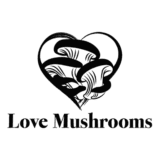Beyond the Plate: Mushrooms as a Catalyst for Health and Environmental Consciousness
Mushrooms, mushrooms everywhere! These little fungi have been popping up all over the place, and for good reason. Not only are they delicious, but they are also incredibly good for you and the environment. So, what’s the buzz all about and what does the future hold for these tasty tidbits? Let’s dive in and find out!
First things first, mushrooms are the new “thing” when it comes to plant-based protein. With more and more people looking to reduce their meat consumption for health or environmental reasons, mushrooms are stepping up to the plate (or should we say, the plate of spaghetti and mushroom meatballs). They are packed with vitamins and minerals, and they have a meaty texture that makes them a great alternative to traditional protein sources. As the Mushroom Council says, “Mushrooms are the original plant-based protein.”


Harnessing the Power of Mushrooms: From Plastic Degradation to Oil Spill Bioremediation
Mushrooms have shown potential in two areas related to environmental sustainability: plastic degradation and bioremediation of petroleum-based pollutants. While mushrooms are not directly used to remove plastics, certain species, such as Pleurotus ostreatus (oyster mushrooms), have demonstrated the ability to break down specific types of plastics. These mushrooms produce enzymes like laccase that can degrade the molecular structure of certain plastics, making them more biodegradable. However, large-scale implementation of mushroom-based plastic removal methods is still in the experimental stage.
Similarly, in the case of petroleum or oil spills, mushrooms are not used as a standalone solution. However, some mushrooms and fungi have the capacity to break down hydrocarbons found in petroleum-based products. For example, Pleurotus pulmonarius (lung oyster mushroom) has been studied for its potential in bioremediation of oil-contaminated environments. In this process, mushroom mycelium is introduced to the contaminated site, secreting enzymes that degrade the hydrocarbons. The mycelium also helps bind the soil, preventing further spread of the contamination.
Both of these applications involve using mushrooms as part of a broader approach to environmental cleanup. While these techniques hold promise, they are still in the early stages of research and development. Practical implementation for large-scale plastic degradation or oil spill cleanup using mushrooms is not yet widely available. It’s important to continue research and explore these innovative approaches to address plastic pollution and petroleum-based contamination in an environmentally friendly manner.
Mushrooms: The Sustainable Superstars of Tomorrow's Materials and Packaging
But mushrooms aren’t just good for you, they are also good for the planet. Scientists are finding new and exciting ways to use mushrooms to create sustainable materials like mushroom-based plastics and textiles. Can you imagine a world where your shoes are made from mushrooms? Sounds like a fairy tale, but it could be a reality in the future. According to a study by the University of Utrecht, mushrooms can replace up to 30% of plastic in certain products. Replacing traditional packaging is also happening with mushroompackaging.com and ecovative.com/ leading the way.
Another exciting development in the world of mushrooms is their potential as a medicinal treatment. For centuries, mushrooms have been used in traditional medicine and recent studies have found that they have anti-inflammatory, antioxidant, and anti-tumor properties. Who knew that something as simple as a mushroom could have such powerful healing abilities?
The future is looking pretty darn delicious and sustainable for mushrooms. As the global mushroom market is expected to reach $64.4 billion by 2027, it’s clear that these little fungi are more than just a side dish. They are a tasty, healthy, and environmentally friendly option that will continue to play a big role in our diets and in our world. So, go forth and enjoy some mushrooms, and who knows, you may be enjoying them in a whole new way in the near future!

References:
- MarketsandMarkets report, “Mushroom Market by Type (Button, Shiitake, Oyster, and Others), Application (Food, Feed, and Others), and Form (Fresh, Dried, and Others): Global Opportunity Analysis and Industry Forecast, 2020-2027”
- Mushroom Council, “Mushrooms: The Original Plant-Based Protein”
- University of Utrecht, “Mushroom-based products could replace 30% of plastic in certain products”
- National Institutes of Health, “Medicinal Mushrooms: An Exploration of Tradition, Healing, & Culture”
-
5LiveLove Extract Bundle
£124.99 — or £92.99 / month -
4theLove Capsules Bundle
£71.99 — or £64.99 / month -
Daily Life Boost – Capsules Bundle
£35.99 — or £33.99 / month -
Energy & Focus Capsules Bundle
£35.99 — or £33.99 / month




